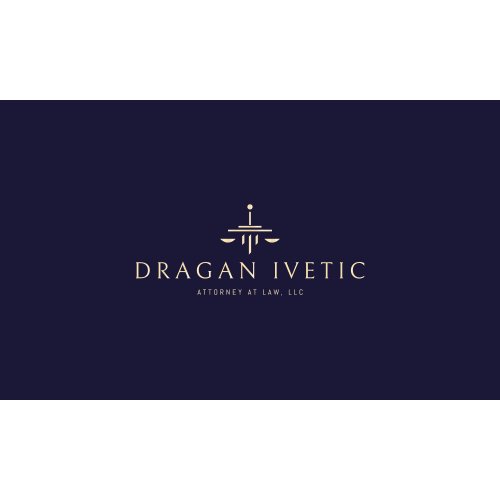Best Intellectual Property Lawyers in Illinois
Share your needs with us, get contacted by law firms.
Free. Takes 2 min.
Or refine your search by selecting a city:
List of the best lawyers in Illinois, United States
United States Intellectual Property Legal Questions answered by Lawyers
Browse our 1 legal question about Intellectual Property in United States and read the lawyer answers, or ask your own questions for free.
- Intellectual property
- Someone in india is using my children's photos on a court case that I have nothing to do with
-
Lawyer answer by Ahire & Associates
You can file a complaint with the cyber cell of the police department if the photos were obtained or used in a manner that violates privacy laws. The Information Technology (IT) Act, 2000, includes provisions for the protection of privacy.Please...
Read full answer
About Intellectual Property Law in Illinois, United States
Intellectual Property (IP) law covers the protection of creations of the mind, including inventions, literary and artistic works, designs, symbols, names, and images used in commerce. In Illinois, as throughout the United States, IP law protects the rights of creators and owners to their intellectual assets. It helps businesses, individuals, and organizations defend their creative products from unauthorized use and provides a legal framework for resolving disputes. Illinois, as a major center for commerce and innovation, regularly deals with a range of IP matters including patents, trademarks, copyrights, and trade secrets.
Why You May Need a Lawyer
While some IP matters may seem straightforward, many situations call for professional legal guidance. You may need an Intellectual Property lawyer in Illinois if you are:
- Starting a new business and want to protect your logo, invention, or unique idea
- Facing accusations of copyright, trademark, or patent infringement
- Drafting or negotiating licensing agreements
- Dealing with counterfeiting or unauthorized use of your intellectual property
- Managing and enforcing your IP portfolio
- Need to resolve disputes regarding employee-created works or trade secrets
- Seeking advice on the best way to register your work and enforce your rights
- Selling, buying, or transferring IP assets
An experienced lawyer can ensure your rights are protected, guide you through complex registration procedures, and help you respond to any legal challenges related to your intellectual property.
Local Laws Overview
Intellectual Property law in Illinois is primarily governed by federal law. However, certain aspects fall under Illinois state law, especially those related to trade secrets, unfair competition, and business contracts.
- Copyrights and Patents: These are governed by federal law. Cases often go through federal courts in Illinois, such as the U.S. District Court for the Northern District of Illinois.
- Trademarks: Although federal protection is available through the United States Patent and Trademark Office (USPTO), businesses can also register trademarks at the state level with the Illinois Secretary of State. State registration offers protection within Illinois.
- Trade Secrets: Illinois adopted the Illinois Trade Secrets Act, closely modeled after the Uniform Trade Secrets Act. This law allows owners to seek legal remedies against those who misappropriate confidential business information.
- Unfair Competition and Business Practices: Illinois law provides additional protections under statutes like the Illinois Consumer Fraud and Deceptive Business Practices Act.
The application and enforcement of these laws can be complex, making it important to consult with an attorney who is familiar with both federal and state regulations.
Frequently Asked Questions
What is considered intellectual property?
Intellectual property refers to creations of the mind, such as inventions, written works, brand names, logos, software, and confidential business information. The main kinds are patents, copyrights, trademarks, and trade secrets.
Do I need to register my intellectual property in Illinois?
While some IP rights, like copyrights, exist automatically upon creation, registering your work can provide significant advantages, including stronger enforcement and statutory damages. Trademarks can be registered at both the state and federal level.
What protections exist for trade secrets in Illinois?
Illinois protects trade secrets through the Illinois Trade Secrets Act, which allows businesses to sue individuals or companies who improperly acquire, use, or disclose confidential business information.
Can I enforce my federal IP rights in Illinois courts?
Yes, federal courts located in Illinois handle many IP cases, specifically regarding patents, copyrights, and federally registered trademarks.
What do I do if someone infringes on my intellectual property?
Consult with an IP attorney right away. They can advise on sending a cease and desist letter, filing a lawsuit, or seeking negotiation or mediation.
Are there any special considerations for startups and small businesses?
Startups and small businesses should take care to protect their brand names, logos, and trade secrets early. An attorney can help prioritize what to protect and guide you through registration and enforcement.
What is the process for registering a trademark in Illinois?
You can file for trademark registration with the Illinois Secretary of State to protect your mark specifically in Illinois, or with the USPTO for nationwide protection. An attorney can help ensure your application is complete and your trademark is eligible.
How long do patents, trademarks, and copyrights last?
Patent terms vary but are usually 20 years from the filing date. Copyrights generally last for the life of the author plus 70 years. Trademarks can last indefinitely as long as they are in use and properly maintained.
Is it possible to sell or license intellectual property?
Yes, intellectual property can be sold, transferred, or licensed, just like tangible property. Proper legal agreements are essential to protect your interests.
Can former employees use company trade secrets after leaving a business?
No, employees are legally obligated to protect trade secrets, even after leaving. Violations can result in lawsuits under state and federal trade secret laws.
Additional Resources
If you need more information or want to take action regarding Intellectual Property in Illinois, consider contacting these organizations and governmental bodies:
- United States Patent and Trademark Office (USPTO) - For federal patent and trademark registration
- United States Copyright Office - For copyright registration and resources
- Illinois Secretary of State - For state-level trademark registration
- Illinois State Bar Association - Offers lawyer referral services and educational materials
- Chicago Bar Association - Provides access to qualified Intellectual Property attorneys
- Illinois Attorney General’s Office - For consumer protection and business practice complaints
- U.S. District Court for the Northern District of Illinois - Handles many federal IP cases
Next Steps
If you believe you need legal help with an Intellectual Property matter in Illinois, consider the following steps:
- Gather all relevant documents, such as registration certificates, contracts, and communications
- Write down your main concerns and any deadlines you are facing
- Contact an attorney who focuses on Intellectual Property law in Illinois
- Ask about their experience with cases similar to yours and discuss their fees and availability
- Consider consulting more than one attorney before making your decision
The right legal advisor can help protect your rights, defend against infringement, and provide peace of mind as you build and grow your business or creative endeavors.
Lawzana helps you find the best lawyers and law firms in Illinois through a curated and pre-screened list of qualified legal professionals. Our platform offers rankings and detailed profiles of attorneys and law firms, allowing you to compare based on practice areas, including Intellectual Property, experience, and client feedback.
Each profile includes a description of the firm's areas of practice, client reviews, team members and partners, year of establishment, spoken languages, office locations, contact information, social media presence, and any published articles or resources. Most firms on our platform speak English and are experienced in both local and international legal matters.
Get a quote from top-rated law firms in Illinois, United States — quickly, securely, and without unnecessary hassle.
Disclaimer:
The information provided on this page is for general informational purposes only and does not constitute legal advice. While we strive to ensure the accuracy and relevance of the content, legal information may change over time, and interpretations of the law can vary. You should always consult with a qualified legal professional for advice specific to your situation.
We disclaim all liability for actions taken or not taken based on the content of this page. If you believe any information is incorrect or outdated, please contact us, and we will review and update it where appropriate.
Browse intellectual property law firms by service in Illinois, United States
Illinois, United States Attorneys in related practice areas.
Browse intellectual property law firms by city in Illinois
Refine your search by selecting a city.












